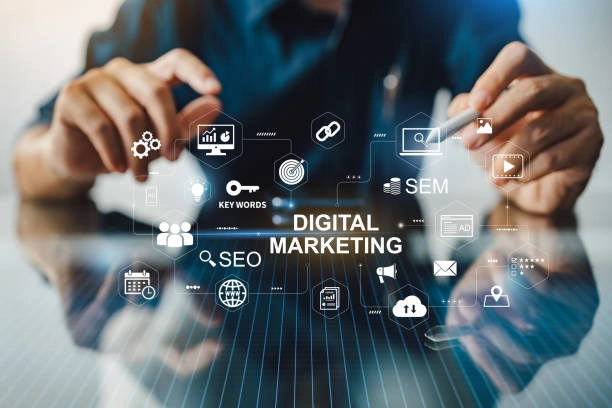In today’s competitive business landscape, understanding the different types of marketing can make all the difference when it comes to reaching and engaging your audience. Each marketing method offers unique advantages, and the key to success is finding the right combination that works for your business. From digital marketing strategies like SEO and social media to more traditional approaches like event marketing, there are countless opportunities to grow. Whether you’re just starting or looking to refine your approach, knowing the ins and outs of these techniques will help you create a winning strategy tailored to your goals.

The 10 Types of Marketing
1. Digital Marketing
Digital marketing encompasses all online marketing efforts and is one of the most important among the different types of marketing available today. It includes various channels such as search engines, websites, social media, email, and mobile apps to connect with current and potential customers. As the world continues to become more digital, leveraging digital marketing can help businesses build their brand, generate leads, and boost sales. With endless opportunities to grow your business, mastering digital marketing is essential in today’s competitive landscape.
Key benefits:
- Global reach: You can reach audiences worldwide.
- Targeting precision: Use data to target specific groups effectively.
Digital marketing specialists play a crucial role in devising and executing campaigns across these channels, helping businesses stay competitive in the online marketplace.
2. Content Marketing
Content marketing is about creating valuable, relevant, and consistent content to attract and retain a clearly defined audience. It’s not about pitching your products but providing truly relevant content that solves problems or offers information.
Examples:
- Blog posts
- Infographics
- Videos
- E-books
Content marketing helps build trust with your audience, improves search engine rankings, and ultimately drives conversions by guiding potential customers through the buying process.
3. Search Engine Optimization (SEO)
SEO is the practice of optimizing your website to rank higher in search engine results pages (SERPs), making it a crucial component among the different types of marketing strategies. This organic visibility brings more traffic to your website without paid ads. SEO involves various elements, including keyword research, on-page optimization, link building, and technical improvements. By focusing on these aspects, businesses can increase their online presence and attract more potential customers, making SEO an essential tool for long-term growth.
Benefits:
- Increased visibility: Higher rankings bring more traffic.
- Cost-effective: Organic traffic is free, making it a sustainable long-term strategy.
Having a strong SEO strategy is essential for growing your digital presence and ensuring that potential customers can find your business when they search for relevant keywords.
4. Pay-Per-Click Advertising (PPC)
PPC advertising is a model where advertisers pay each time a user clicks on one of their online ads. Google Ads and Facebook Ads are popular PPC platforms that allow businesses to place ads across various networks.
Advantages:
- Immediate results: Unlike SEO, PPC delivers immediate visibility and traffic.
- Measurable: You can track exactly how much you’re spending and how many leads you generate.
PPC is a great option for businesses looking to get immediate traffic and see a direct return on investment.

5. Social Media Marketing
Social media marketing uses platforms like Facebook, Instagram, LinkedIn, and Twitter to promote your brand, making it one of the most effective among the different types of marketing strategies. It’s crucial for businesses today as it offers direct engagement with customers, helping to build relationships and create a loyal community around your brand. By actively interacting with your audience, social media marketing can enhance brand visibility and foster trust, making it an essential part of any modern marketing approach.
Benefits:
- Brand awareness: Boost your visibility across platforms.
- Customer engagement: Engage with customers through comments, likes, shares, and direct messaging.
A strong social media presence can drive traffic to your website, improve brand loyalty, and increase conversion rates.
6. Email Marketing
Email marketing is one of the most effective ways to nurture relationships with your customers. It involves sending targeted emails to a list of subscribers, with the goal of educating, informing, and persuading them to take specific actions.
Types of emails:
- Newsletters: Regular updates about your business or industry.
- Promotional emails: Offering discounts or special deals.
- Welcome emails: Introducing new customers to your brand.
With the right email marketing strategy, you can keep your audience engaged, drive sales, and maintain a lasting relationship with your customers. As one of the different types of marketing, email marketing allows you to deliver targeted, personalized messages directly to your audience. This makes it a powerful tool for nurturing customer relationships and encouraging repeat business, helping to keep your brand top-of-mind in a way that other marketing methods may not.
7. Affiliate Marketing
Affiliate marketing is a performance-based marketing strategy where businesses reward affiliates (partners) for generating traffic or sales through their referral efforts. Affiliates can be individuals or other businesses that promote your product or service in exchange for a commission.
Benefits:
- Cost-effective: You only pay when results are achieved.
- Extended reach: Affiliates bring new customers to your business.
By partnering with affiliates, you can expand your marketing efforts and reach a wider audience without significantly increasing your marketing budget.
8. Influencer Marketing
Influencer marketing leverages the power of social media influencers—individuals with a large following and high engagement rates—to promote your products or services. This form of marketing relies on the trust and authenticity that influencers have built with their audiences.
Benefits:
- Trust factor: Consumers are more likely to trust recommendations from influencers they follow.
- Targeted reach: Influencers typically cater to niche markets, ensuring your message reaches the right audience.
Collaborating with influencers can enhance brand credibility, drive sales, and increase brand visibility, especially among younger demographics.
9. Event Marketing
Event marketing involves promoting your business through live events, whether in person or virtually. As one of the different types of marketing, it includes activities like trade shows, product launches, webinars, and conferences. Event marketing is valuable because it helps you build personal connections with your target audience, creating memorable experiences and fostering stronger relationships. This direct interaction can enhance brand awareness and trust, making it a powerful tool in your overall marketing strategy.
Examples of events:
- Webinars: Online seminars that provide value and education.
- Trade shows: Industry events where businesses showcase products and services.
- Product launches: Events designed to introduce new products to the market.
Event marketing is great for building brand awareness, generating leads, and nurturing relationships with potential customers.
10. Video Marketing
Video marketing has grown significantly in recent years and continues to be a powerful tool for businesses. Among the different types of marketing, video marketing is particularly engaging, whether through short-form content on platforms like TikTok or longer educational videos on YouTube. Video content helps capture attention and connect with audiences in a dynamic way, making it an effective method to convey your brand’s message and boost engagement.
Benefits:
- High engagement: Video content tends to capture and hold attention better than text or images.
- Versatility: You can create educational videos, product demos, behind-the-scenes looks, and customer testimonials.
Video marketing is an effective way to tell your brand’s story, engage your audience, and convert leads into customers.

In conclusion, choosing the right marketing mix is essential for the success of your business. Each of the different types of marketing offers unique benefits, and when used strategically together, they can form a powerful growth engine for your brand. Whether you’re focusing on digital marketing strategies like SEO, PPC, and social media, or exploring traditional methods like event and affiliate marketing, understanding these types of marketing will help you effectively reach your target audience and achieve your business goals.
At Mazor Digital, we’re passionate about helping businesses thrive through innovative and tailored digital marketing solutions. Whether you’re looking to grow your online presence through SEO, run effective PPC campaigns, or create engaging social media content, our team of digital marketing strategists is here to guide you. Ready to grow your business? Contact us today to learn how our solutions can work for you!
Frequently Asked Questions
1. What are the main types of marketing businesses should focus on?
There are several types of marketing businesses can benefit from, including digital marketing, content marketing, social media marketing, SEO, PPC, email marketing, and influencer marketing. The key is finding the right mix that works for your business goals and target audience.
2. How can digital marketing solutions help grow my business?
Digital marketing solutions help businesses increase their online visibility, attract more potential customers, and ultimately drive sales. Through various strategies like SEO, social media marketing, and paid advertising, digital marketing allows you to reach your target audience where they spend most of their time—online.
3. What does a digital marketing specialist do?
A digital marketing specialist is responsible for creating and executing online marketing strategies to help businesses grow. They use various tools and platforms like SEO, PPC, content marketing, and social media to attract and engage customers. Their role is crucial in navigating the digital landscape and maximizing marketing efforts.
4. How can I get started with digital marketing?
If you’re wondering how to get into digital marketing, there are a few steps you can take: learn the basics of SEO, content marketing, and social media; take online courses or certifications; gain practical experience by working on real projects; and stay up-to-date with industry trends. Starting with a solid foundation will help you build a successful career in digital marketing.
5. What is the role of a digital marketing strategist?
A digital marketing strategist focuses on planning and coordinating marketing efforts to meet business objectives. They analyze data, set goals, and create marketing campaigns that align with the company’s vision. They ensure that all digital marketing efforts are cohesive and geared toward long-term success.
6. How does social media marketing differ from other types of marketing?
Social media marketing involves using platforms like Facebook, Instagram, and Twitter to promote a brand, while other types of marketing, like content marketing or SEO, focus on driving traffic through websites or search engines. Among the different types of marketing, social media marketing stands out because it allows for more direct interaction and engagement with customers, making it a valuable part of a larger marketing strategy that fosters community and builds stronger customer relationships.
7. Why is SEO important for digital marketing?
SEO is critical because it helps improve your website’s visibility in search engine results, driving organic traffic. When your website ranks higher in search results, it attracts more potential customers without the need for paid ads, making it a cost-effective way to grow your business as part of a broader digital marketing plan.



